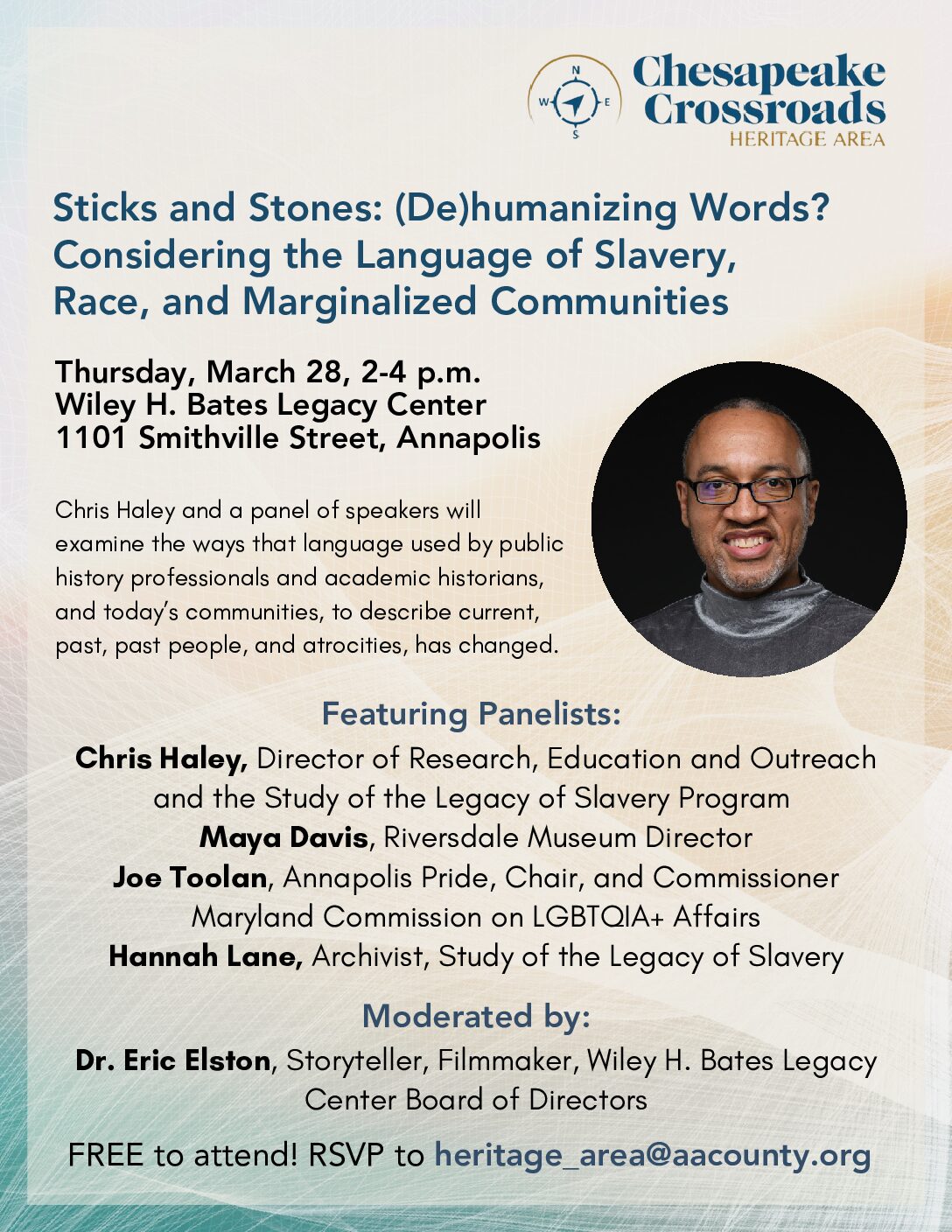
The Chesapeake Crossroads Heritage Area is pleased to present a panel discussion, led by author and scholar Chris Haley of the Maryland State Archives, entitled “Sticks and Stones: (De)humanizing Words? Considering the Language of Slavery, Race, and Marginalized Communities,” to be held on March 28, 2-4 p.m. The program will look closely at the ways that language used by public history professionals and academic historians, and today’s communities, to describe current, past, past people, and atrocities, has changed. A panel of speakers will discuss, from both professional and personal perspectives, the complexities of describing the institution of slavery, the actions of its perpetrators, and slavery’s modern legacy to both scholastic and public audiences.
Haley, who is Director of Research, Education and Outreach, and the Study of the Legacy of Slavery at the Maryland State Archives, will deliver a presentation on complex representations of race and language which he has noticed over his career as an actor, writer, and archivist, and nephew of renowned author Alex Haley. Maya Davis, Riversdale Museum Director; Joe Toolan, Annapolis Pride, Chair, and Commissioner Maryland Commission on LGBTQIA+ Affairs; and Hannah Lane, Archivist, Study of the Legacy of Slavery, will share stories in a panel of shared personal and professional experiences which dealt with navigating and addressing potentially charged narratives. Dr. Eric Elston, Director of Diversity and Development with Telegraph Creative, will serve as Moderator.
This presentation will address questions such as: What influences have engendered language changes within the field? What critical voices have contributed? Have language shifts helped or hindered education around slavery? When historical records list enslaved and free Africans and African Americans in eighteenth- and nineteenth century racialized terms, are modern scholars reinforcing dehumanizing language, racist stereotypes and social dynamics by repeating them? What are some of the dangers of revising document-based language? What are the appropriate contexts in which language shifts can reveal more about those who experienced the horrors of slavery? Various marginalized communities have reclaimed offensive or dehumanising terms and transformed their impact and meaning when used amongst their own. How might we best produce respectful and honest language changes over time in social and academic spaces? What lessons and warnings can be heard, absorbed, and shared by history professionals and private citizens?
The program will be held on Thursday, March 28, 2-4 p.m., at the Wiley H. Bates Legacy Center, 1101 Smithville Street in Annapolis and is FREE to attend. Please RSVP to [email protected] to reserve your seat.
